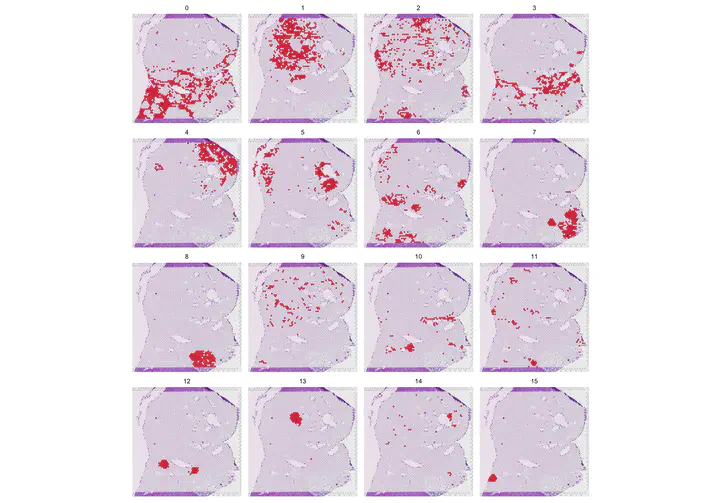4) Genome-wide mapping of oncogenic pathways and genetic modifiers of chemotherapy using a high-risk hepatoblastoma genetic model

A lack of relevant genetic models and cell lines hampers our understanding of hepatoblastoma pathogenesis and the development of new therapies for this neoplasm. We report a liver-specific MYC-driven hepatoblastoma murine model that faithfully recapitulates the pathological features of mixed fetal and embryonal hepatoblastoma, with transcriptomics resembling the high-risk gene signatures of the human disease. Single-cell RNA-sequencing and spatial transcriptomics identified distinct subpopulations of hepatoblastoma cells. After deriving cell lines from the mouse model, we mapped the cancer dependency genes using CRISPR-Cas9 screening and identified druggable targets shared with human hepatoblastoma (i.e., CDK7, CDK9, PRMT1, PRMT5). Our screen also revealed oncogenes and tumor suppressor genes in hepatoblastoma that engage multiple, druggable cancer signaling pathways. Chemotherapy is critical for human hepatoblastoma treatment. A genetic mapping of doxorubicin response by CRISPR-Cas9 screening identified modifiers whose loss-of-function synergizes with (e.g., PRKDC) or antagonizes (e.g., apoptosis genes) with the effect of chemotherapy. The combination of PRKDC inhibition and doxorubicin-based chemotherapy greatly enhances therapeutic efficacy. These studies have provided a useful set of resources including disease models suitable to identify and validate potential therapeutic targets in human high-risk hepatoblastoma.
Reference
Genome-wide mapping of oncogenic pathways and genetic modifiers of chemotherapy using a high-risk hepatoblastoma genetic model
Jie Fang, Shivendra Singh, Changde Cheng, Sivaraman Natarajan, Heather Tillman, Ahmed Abu-Zaid, Adam Durbin, Ha Won Lee, Qiong Wu, Jacob Steele, Jon P. Connelly, Hongjian Jin, Wenan Chen, Yiping Fan, Gang Wu, Shondra M. Pruett-Miller, Jerold Rehg, Ruoning Wang, Evan Glazer, Andrew Murphy, Taosheng Chen, Andrew Davidoff, John Easton, Xiang Chen, Jun Yang